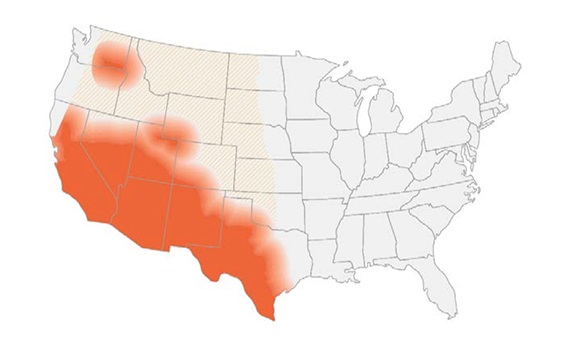What is Coccidioidomycosis?
Coccidioidomycosis, commonly known as Valley Fever, is caused by the dimorphic fungus, Coccidioides. The spores of the fungus are found in the soil of arid, warm climates in the southwestern United States, including Arizona, New Mexico, Utah, Nevada, Texas, and California, and more recently cases have been detected in Washington and Oregon. It is also found in parts of Mexico and Central and South America.
Valley Fever develops when the desert soil is disturbed and airborne spores of Coccidioides are inhaled. Examples of disturbances may include dust storms, running, hiking, agricultural activity or construction. Anyone who lives, visits, or travels with their pets through the endemic areas may develop Valley Fever. It is difficult to prevent exposure in these areas, but the risk is lowered by keeping pets indoors. Those who are “snowbirds” should be aware for themselves and their pets.
It is important to note that Valley Fever is not contagious; it is contracted upon inhalation of the fungal spores. Once in the body, the spores transform into yeast-like spherules within the lung before causing infection.
Estimated Areas with Coccidioidomycosis (Valley Fever) in the United States









